Revamped Rhodes House to stage 'critical' exhibits
- Published
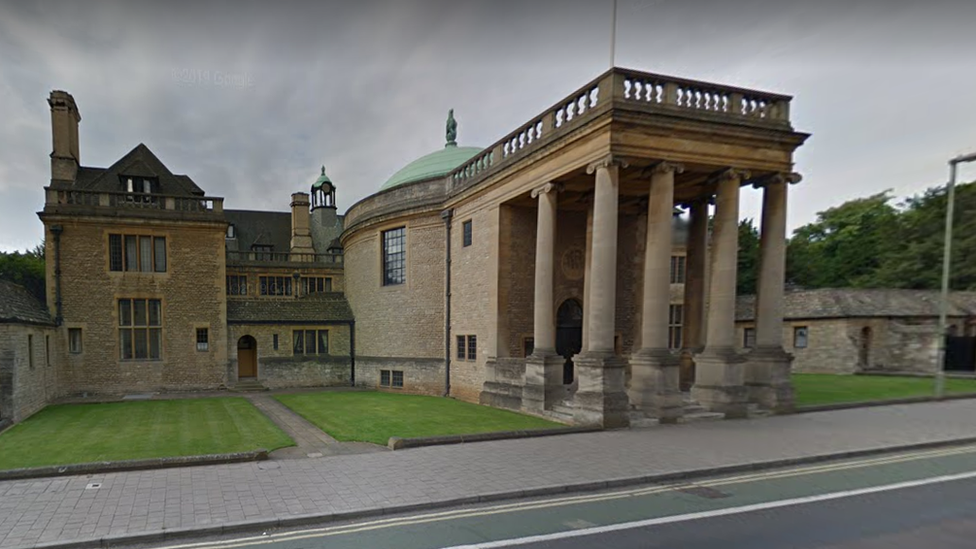
Rhodes House's main entrance features a rotunda which was was built as a memorial to a trustee, those who died during both world wars and to Rhodes himself.
Open days and exhibits that "critically engage contested legacies" will feature at the headquarters of a trust founded by Cecil Rhodes after it undergoes a major redevelopment.
Rhodes House will be remodelled and have its basement converted into a conference hall for 300 people after plans were approved on Tuesday.
The Rhodes Trust said the £37m revamp would give greater access to visitors.
The Grade II*-listed building was built as memorial to Rhodes in 1929.
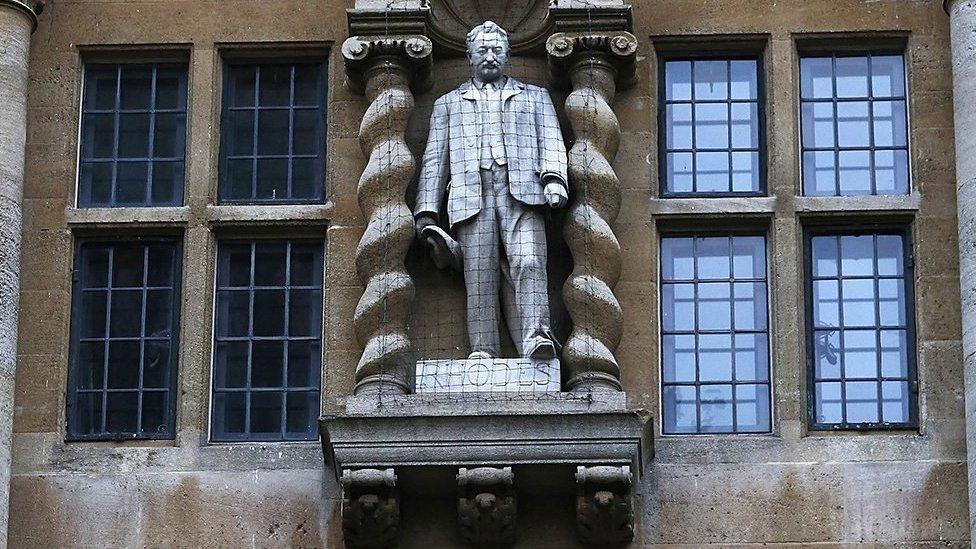
Protesters have been calling for the statue of the British Imperialist Cecil Rhodes to be removed for several years
Oxford city councillors narrowly passed plans for the redevelopment project, which includes new accommodation and improved office spaces, after concerns were raised about the number of bicycle parking spaces.
The decision over the building's redevelopment, made on Tuesday afternoon, comes after Oxford's Oriel College decided in June it wanted to remove its statue of Rhodes.
Campaigners say Rhodes, a 19th Century businessman and politician in southern Africa, represented white supremacy and is steeped in colonialism and racism.
The city council said the building, designed by Rhodes' former employee Hebert Baker, was "an architectural embodiment of the British Imperial worldview in the early 20th Century" but that the Rhodes Trust had been able to "move beyond the worldview of its founder".
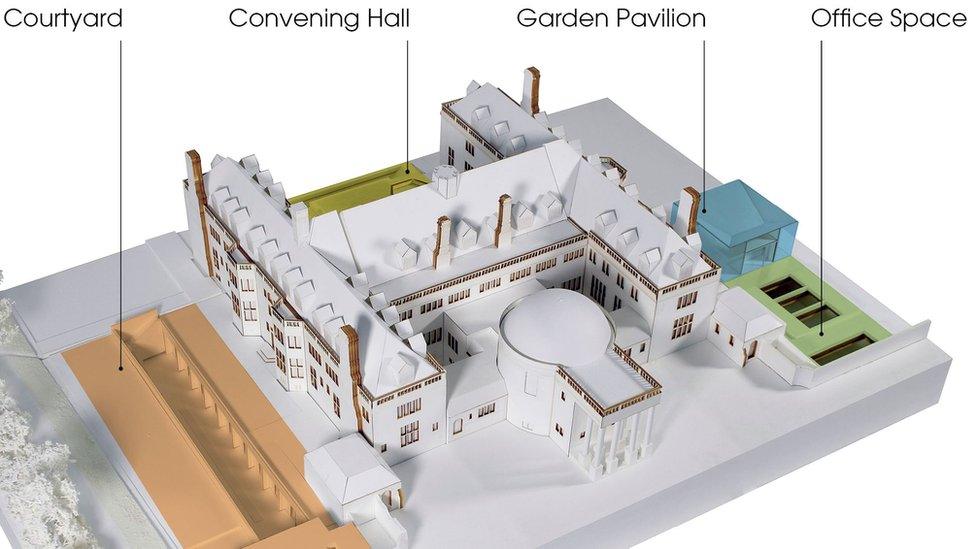
Stirling-Prize winning architects Stanton Williams have designed the new Rhodes House
The trust, established in the will of Rhodes, has awarded scholarships to more than 8,000 overseas students to study at Oxford University since 1902.
The charity said regular open days, tours and an "explanation of its architecture and the work critically engage contested legacies of the Trust" would take place following the two-year building project.
Exhibits will also be created to "raise challenging questions about how we heal, reconcile and overcome the inequities of the past", the trust said.
Dr Elizabeth Kiss, warden and CEO of the trust, said the development was a "key milestone in our mission to expand and transform the Rhodes Trust in its second century".
The trust says the redevelopment will allow it to increase its number of scholars from 260 to 325 by 2028.
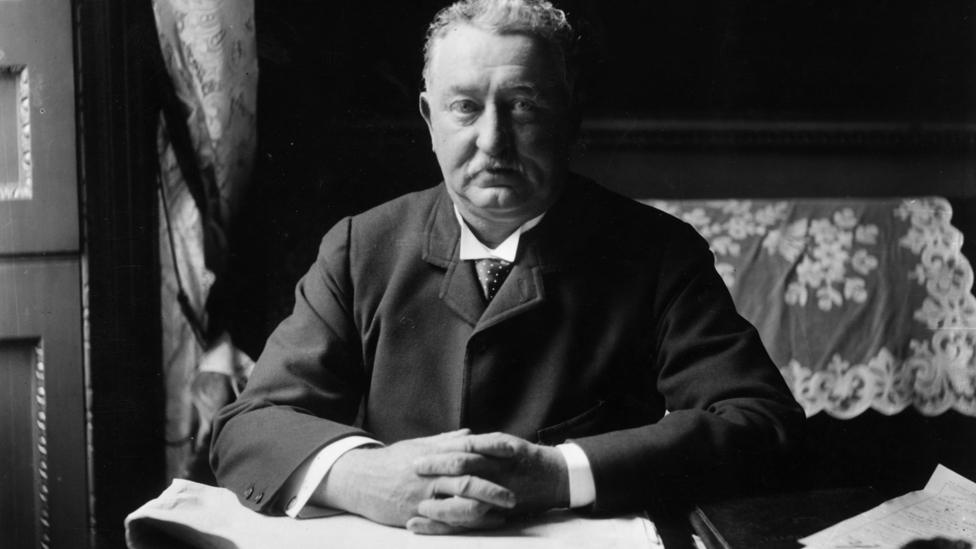
Cecil Rhodes was a British imperialist and politician in southern Africa in the 19th Century
Rhodes Must Fall, which led protests to remove the statue in the city's High Street, previously called for the trust and its headquarters in South Parks Road to be renamed and reformed.
The building, largely untouched since it was built, is currently used as a base for students to study and meet peers and is also a wedding venue.
It consists of a single U-shaped building with smaller extensions and its garden contains a section of the defensive rampart thrown up to protect Oxford during the English Civil War.
- Published11 August 2020
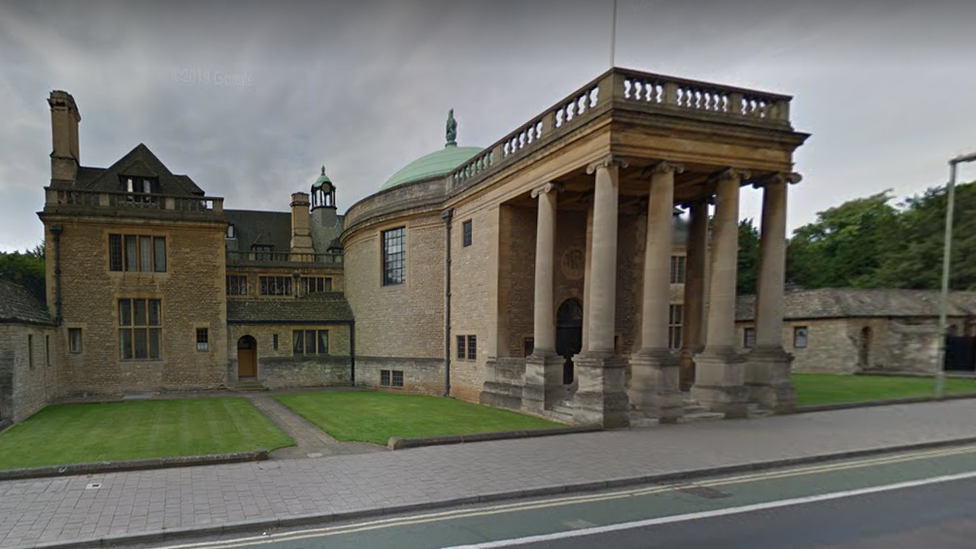
- Published21 July 2020

- Published11 June 2020

- Published8 June 2020
